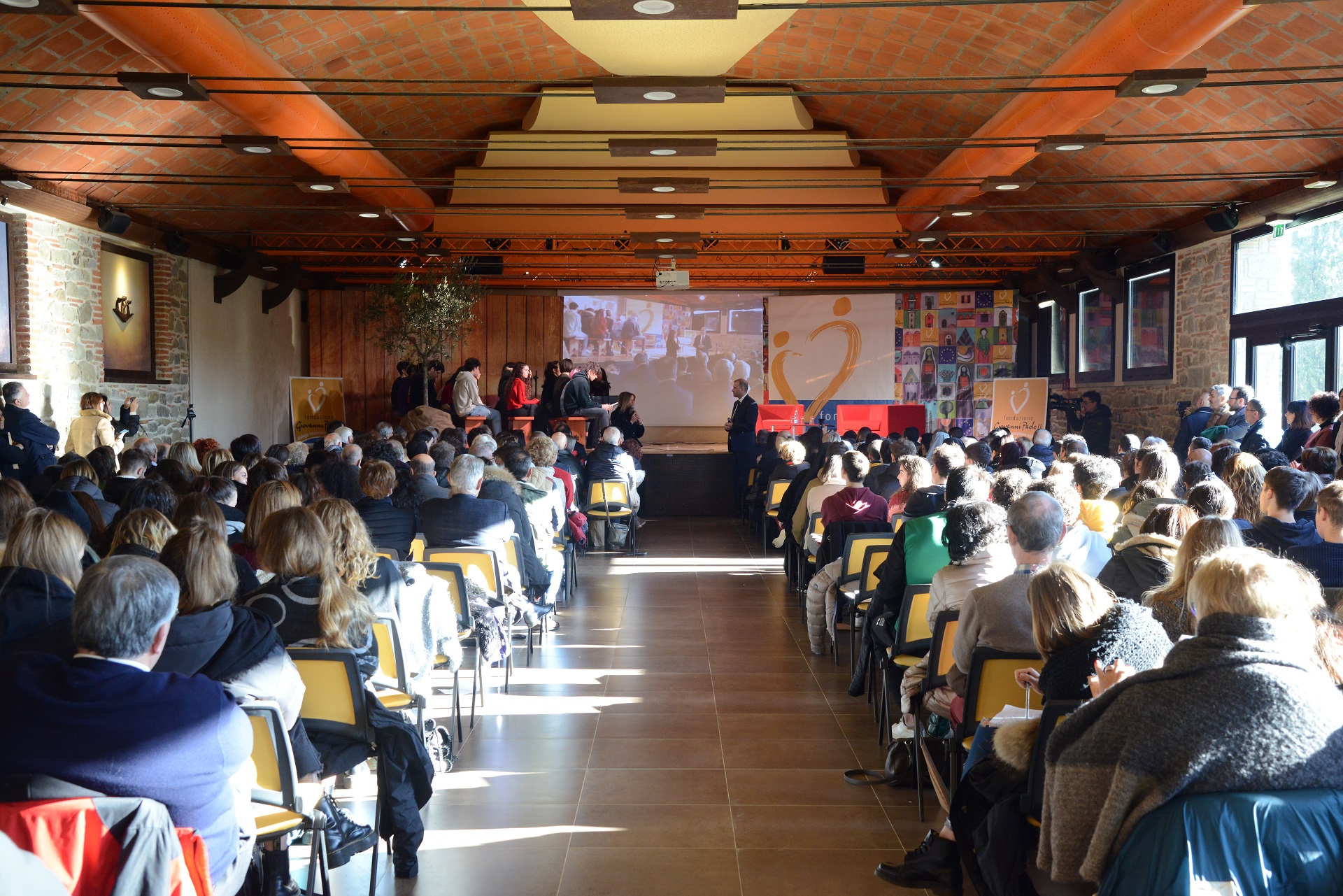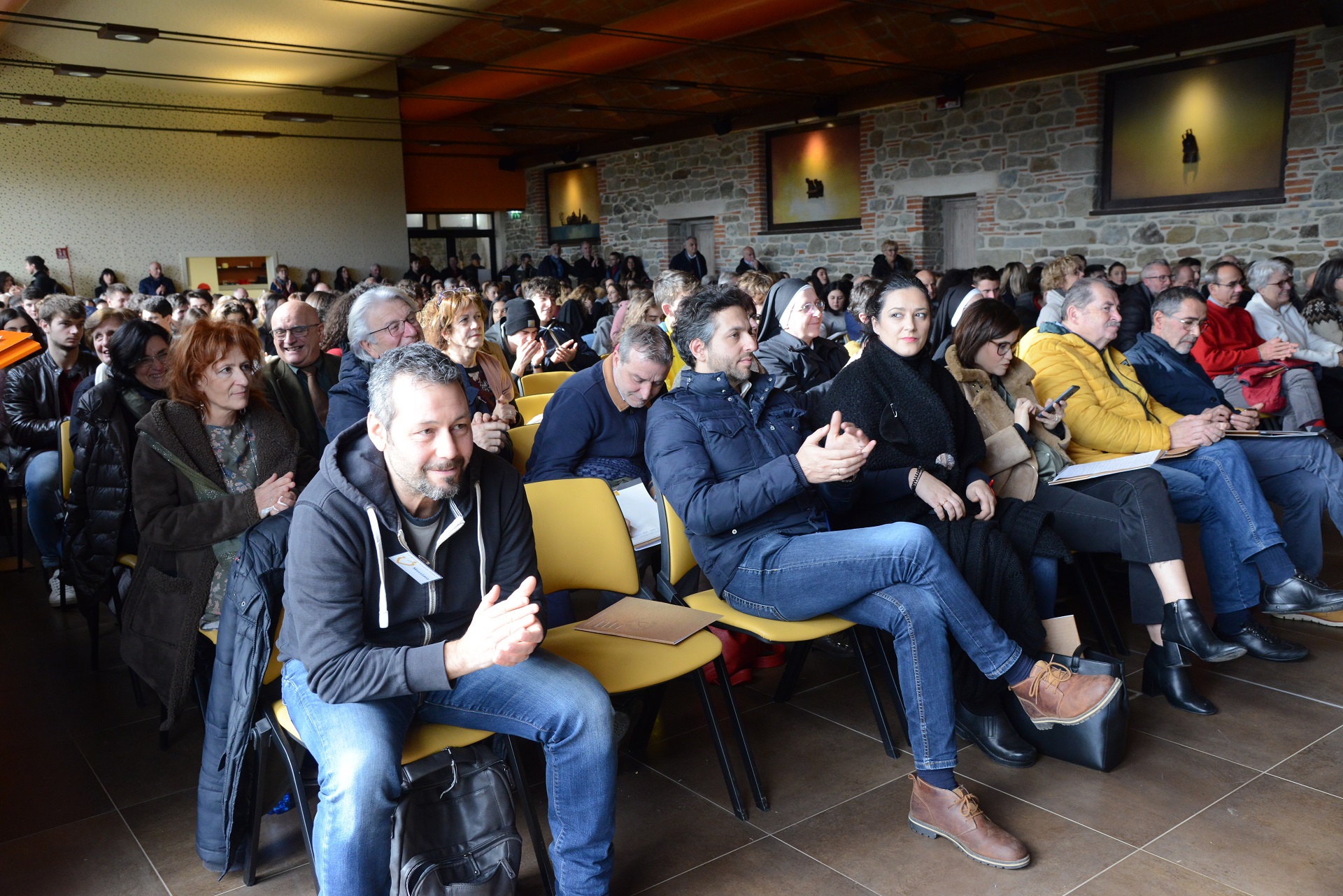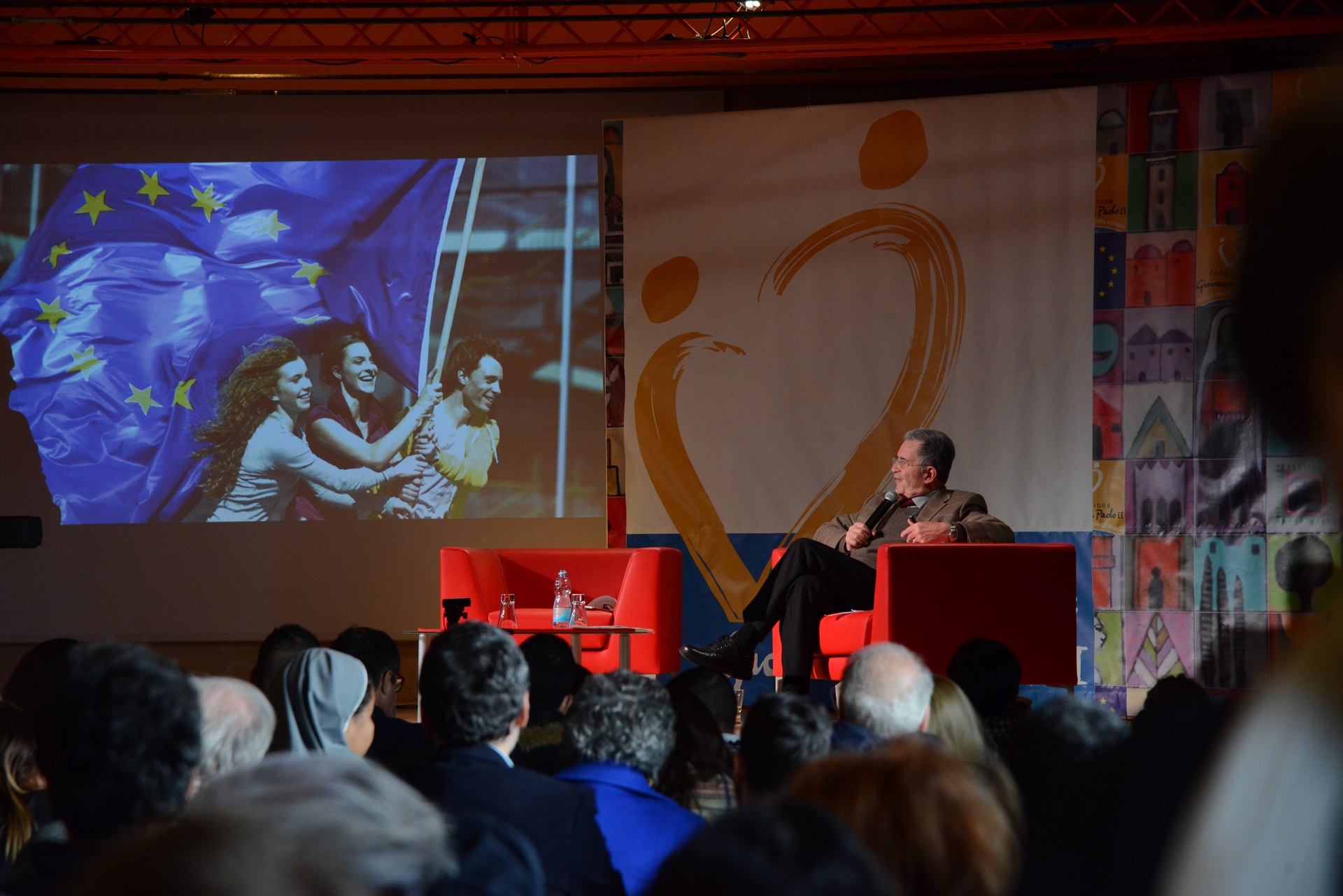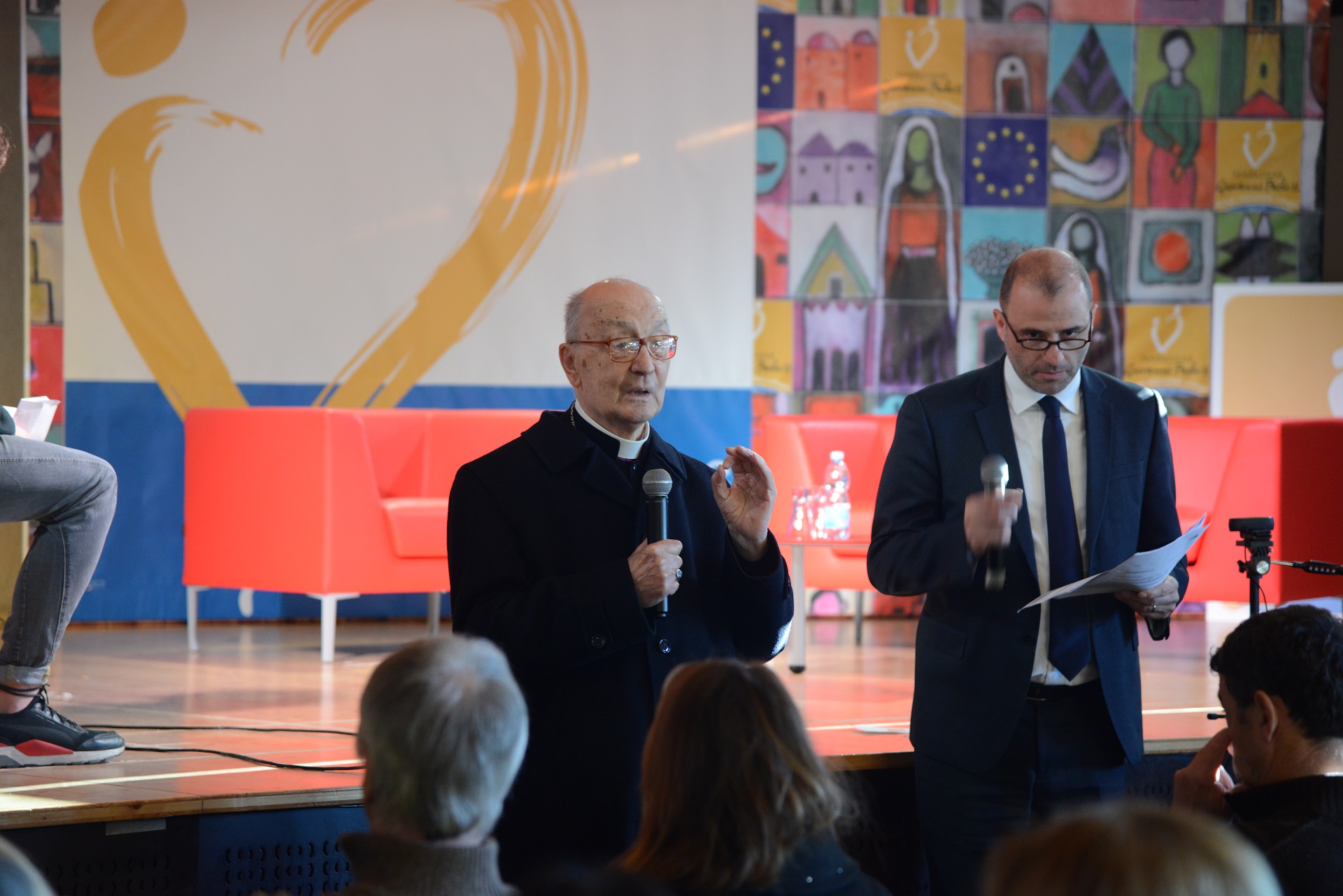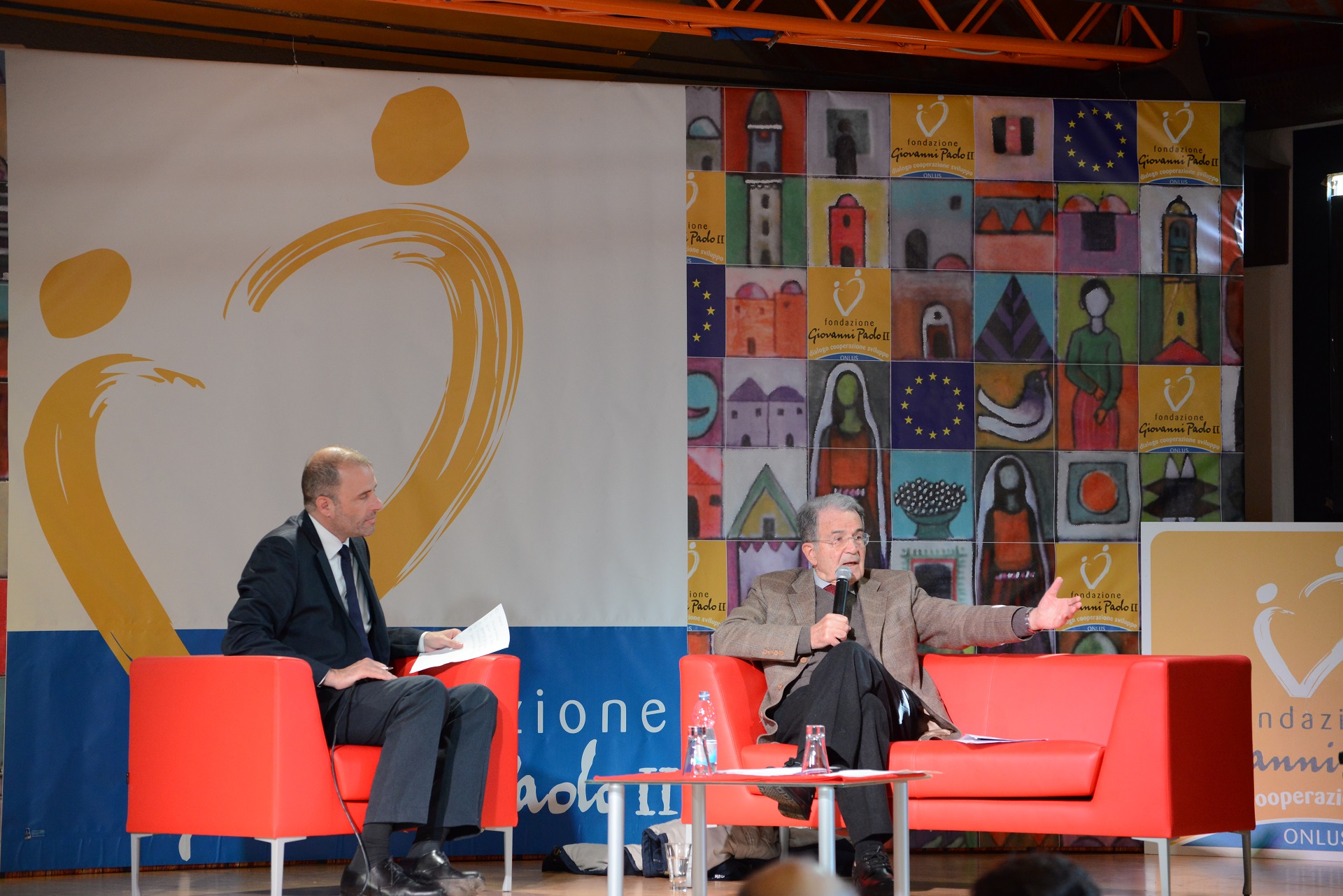
"Very real sign of God's goodness" Paul VI and the Ephpheta Institute in the light of Vatican II
by Riccardo Burigana
On December 4, 1963, in his closing address to the Second Session of the Second Vatican Council, Paul VI announced to the Council Fathers his intention to make a pilgrimage to the Holy Land: Paul VI wanted to invite everyone, not only Catholics, to rethink the centrality of the life of Jesus Christ and the birth of the Christian experience for the witness of the Word of God in the world. The pilgrimage - this is how the pope wanted his journey to be defined - assumed a special meaning because it was realized when the Catholic Church, with the celebration of the Second Vatican Council, had promoted a process of aggiornamento, opening new perspectives of dialogue with other Christians, with other religions and with the world.
Paul VI's pilgrimage played a fundamental role in the life of the Second Vatican Council, especially after the meeting between Paul VI and Athenagoras, the Ecumenical Patriarch of Constantinople, whose pictures, rather than the words commenting the meeting, showed the world how much the visible unity of the Church was considered a priority for the pope, although the decree Unitatis redintegratio on the Catholic principles of ecumenism had to be promulgated and it was unclear the destiny of the document on the Jews in the Council.
Paul VI's pilgrimage to the Holy Land had not only an ecumenical dimension but it can be considered programmatic of the whole pontificate for the themes addressed and for the projects started. During his journey Paul VI had noticed the presence of deaf-mute children without assistance, and he asked their condition, wondering what he, and the Catholic Church, could do to give them hope for today and tomorrow. Paul VI took the decision to create an "Institute," an educational structure, where deaf-mute children could find training that would allow them to express themselves so that they can live in the world.
The project of creation of the Institute, which was particularly close to the pope's heart for the relationship that had been created with the Holy Land, wanted to be also a sign of the reception of Vatican II, where it had been discussed how the Church could bear witness to her vocation to be poor for the poor people. Despite the pope's intentions, it was absolutely not easy, for many reasons, to achieve the realization of the project that included an educational program which had to be planned.
Paul VI wanted that the name of the school refers to a passage in the Gospel according to Mark (7, 32-35): "Some people brought to him a man who was deaf and could hardly speak, and they begged Jesus to place his hand on him. After he took him aside, away from the crowd, Jesus put his fingers into the man's ears. Then he spit and touched the man's tongue. He looked up to heaven and with a deep sigh said to him, "Ephphphatha!" (which means "Be opened!"). At this, the man's ears were opened, his tongue was loosened and he began to speak plainly." The choice of Paul VI was rooted in the rediscovery of the Word of God for the daily life of the Church, which had been discussed in Vatican II, as a fundamental element of the process of aggiornamento of the Church, so much so that "the sacred synod encourages the sons of the Church and Biblical scholars to continue energetically, following the mind of the Church, with the work they have so well begun, with a constant renewal of vigor." (Dei Verbum, no. 23).
After seven years of Paul VI's pilgrimage, on June 30, 1971, Cardinal Ma "ximilian Furstemberg, in the name of Paul VI, who had wanted the Institute in Bethlehem, inaugurated the school, whose management was entrusted to the Congregation of the Sisters Teachers of Saint Dorothy, Daughters of the Sacred Hearts from Vicenza (Italy), already present in the Holy Land since 1927.
The Institute was a gift of Pope Paul VI for the Church and for the world and it a perennial source of hope for all men and women of good will: " Wherever children are accepted, loved, cared for and protected, the family is healthy, society is more healthy and the world is more human. Here we can think of the work carried out by the Ephpheta Paul VI institute for hearing and speech impaired Palestinian children: it is a very real sign of God's goodness. It is a clear sign that society is healthier" (pope Francis, Homily, Bethlehem, May 25, 2014).
TRANSLATION
"Most concrete sign of God's goodness." Paul VI and the Effeta Institute in light of Vatican II
On Dec. 4, 1963, in the concluding address of the Second Session of the Second Vatican Council, Paul VI announced to the Council Fathers his intention to make a pilgrimage to the Holy Land: Paul VI wanted to invite everyone, not only Catholics, to rethink the centrality of the life of Jesus Christ and the birth of the Christian experience for the witness of the Word of God in the world. The pilgrimage - as the Pope wished to define his journey - took on special significance because it was made when the Catholic Church, with the celebration of the Second Vatican Council, had promoted a process of aggiornamento, opening new perspectives for dialogue with other Christians, other religions and the world.
Paul VI's pilgrimage played a pivotal role in the life of the Second Vatican Council, especially after the meeting between Paul VI and Athenagoras, the Ecumenical Patriarch of Constantinople, whose images, rather than words commenting on the meeting, showed the world how visible unity of the Church was a priority for the Pope, even though the decree Unitatis redintegratio on Catholic principles of ecumenism had yet to be promulgated and the fate of the document on Jews in the Council was unclear.
Paul VI's pilgrimage to the Holy Land had not only an ecumenical dimension but can be considered programmatic of the entire pontificate because of the issues addressed and the projects initiated. During his trip Paul VI had noticed the presence of deaf-mute children without assistance and inquired about their condition, wondering what he, and the Catholic Church, could do to give them hope for today and tomorrow. Paul VI made the decision to create an "Institute," an educational facility, where deaf-mute children could find an education that would enable them to express themselves and live in the world.
The project to create the Institute, which was particularly dear to the Pope because of the relationship that had been established with the Holy Land, was also intended to be a sign of the reception of Vatican II, where it had been discussed how the Church could bear witness to its vocation to be poor for the poor. Despite the Pope's intentions, it was not at all easy, for many reasons, to get to the realization of the project, which included an educational program that had to be planned.
Paul VI wanted the name of the school to refer to a passage in the Gospel according to Mark (7:32-35): "Some brought to him a man who was deaf and barely spoke, and they begged Jesus to place his hand on him. After taking him aside, away from the crowd, Jesus put his fingers in the man's ears. Then he spit and touched the man's tongue. He looked up and with a deep sigh said to him, "Effata!" (meaning "Be open!"). At this his ears were opened, his tongue loosed and he began to speak clearly." Paul VI's choice was rooted in the rediscovery of the Word of God for the daily life of the Church, which had been discussed at Vatican II, as a fundamental element in the process of updating the Church, so that "the sacred synod encourages the sons of the Church and the biblical scholars to continue energetically, following the thought of the Church, the work which they have so well begun, with a constant renewal of vigor."(Dei Verbum, no. 23).
After seven years of Paul VI's pilgrimage, on June 30, 1971, Cardinal Maximilian Furstemberg, on behalf of Paul VI, who had wanted the Institute in Bethlehem, inaugurated the school, the management of which was entrusted to the Congregation of the Sisters Teachers of St. Dorothy, Daughters of the Sacred Hearts of Vicenza (Italy), already present in the Holy Land since 1927.
The Institute was Pope Paul VI's gift to the Church and the world and is a perennial source of hope for all men and women of good will: "Wherever children are welcomed, loved, cared for and protected, the family is healthier, society is healthier and the world is more humane. Here we can think of the work done by the Ephheta Paul VI Institute for Palestinian children with hearing and speech problems: it is a very real sign of God's goodness. It is a clear sign that society is healthier" (Pope Francis, Homily, Bethlehem, May 25, 2014).

